The Top Nursing Schools in Kansas
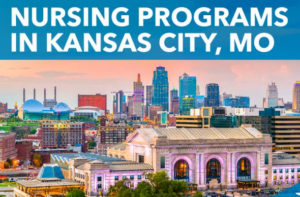 Kansas faces a high demand for nurses, and being a Nurse Licensure Compact (NLC) state allows Kansas-licensed nurses to apply for a multistate license, enabling them to practice in other compact states without needing additional licensing.
Kansas faces a high demand for nurses, and being a Nurse Licensure Compact (NLC) state allows Kansas-licensed nurses to apply for a multistate license, enabling them to practice in other compact states without needing additional licensing.
For those aspiring to enter the field, it’s essential to find a reputable nursing program that meets Kansas RN license requirements and provides the right foundation for passing the NCLEX-RN exam.
This guide will help prospective nurses navigate the best nursing programs in Kansas, while also providing insights on nursing career outlook, salaries, and licensure requirements.
The Best Nursing Programs in Kansas
1. University of Kansas School of Nursing
- Location: Kansas City, KS
- Website: https://nursing.ku.edu
- The University of Kansas School of Nursing is widely recognized as a top nursing school in Kansas, offering comprehensive Bachelor of Science in Nursing (BSN), Master of Science in Nursing (MSN), and Doctor of Nursing Practice (DNP) programs. The BSN program provides students with a strong clinical foundation through extensive hands-on experience in local healthcare settings. The MSN program offers several advanced practice tracks, including Nurse Practitioner and Nurse Educator. For those seeking a terminal degree, the DNP program prepares nurse leaders for high-level clinical and administrative roles. KU’s nursing school is accredited by the Commission on Collegiate Nursing Education (CCNE) and is known for its research, clinical placements, and interprofessional education.
- Campus: Kansas City, KS
- Type: Public
- Accreditation: CCNE
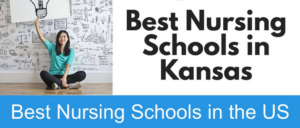
- Tuition: Approx. $10,000 per year (in-state)
- Minimum Time Commitment: 2-4 years (BSN), 2-3 years (MSN), 3-4 years (DNP)
- Online Available: Yes (for some programs)
- Degree Requirements: BSN, MSN, DNP
- Programs: Nurse Practitioner, Nurse Educator, Nurse Administrator, DNP
2. Washburn University School of Nursing
- Location: Topeka, KS
- Website: https://www.washburn.edu
- Washburn University offers a well-respected Bachelor of Science in Nursing (BSN) program designed to prepare students for careers in various nursing specialties. Known for its strong clinical training and excellent faculty support, Washburn’s nursing program offers extensive hands-on experience through partnerships with local hospitals and healthcare centers. The university’s BSN program is accredited by the Commission on Collegiate Nursing Education (CCNE) and equips graduates with the skills necessary to provide compassionate, high-quality care. Washburn University also offers an RN-to-BSN program for licensed nurses seeking to complete their degree.
- Campus: Topeka, KS
- Type: Public
- Accreditation: CCNE
- Tuition: Approx. $8,000 per year (in-state)
- Minimum Time Commitment: 2-4 years (BSN), 2 years (RN-to-BSN)
- Online Available: Yes (for RN-to-BSN)
- Degree Requirements: BSN
- Programs: RN-to-BSN
3. Kansas State University College of Health and Human Sciences
- Location: Manhattan, KS
- Website: https://www.k-state.edu
- Kansas State University (K-State) offers a robust nursing program through its College of Health and Human Sciences. The Bachelor of Science in Nursing (BSN) program prepares students to become registered nurses, providing clinical training in hospitals, clinics, and community health settings. K-State’s program is highly regarded for its academic rigor and clinical opportunities. Additionally, K-State offers an RN-to-BSN program for registered nurses who wish to further their education. The nursing school’s clinical partnerships across Kansas offer students hands-on experiences to prepare them for the NCLEX-RN exam and beyond.
- Campus: Manhattan, KS
- Type: Public
- Accreditation: CCNE
- Tuition: Approx. $9,000 per year (in-state)
- Minimum Time Commitment: 2-4 years (BSN), 2 years (RN-to-BSN)
- Online Available: Yes (RN-to-BSN)
- Degree Requirements: BSN
- Programs: RN-to-BSN
4. University of Saint Mary School of Nursing
- Location: Leavenworth, KS
- Website: https://www.stmary.edu
- University of Saint Mary provides a Bachelor of Science in Nursing (BSN) program that prepares students for a successful career in nursing. The program integrates classroom learning with clinical rotations in diverse healthcare settings, ensuring graduates are well-equipped for the demands of the nursing profession. The University of Saint Mary’s program is accredited by the Commission on Collegiate Nursing Education (CCNE) and emphasizes compassionate care, leadership, and critical thinking. The university also offers an RN-to-BSN program for registered nurses seeking to complete their bachelor’s degree and advance in their careers.
- Campus: Leavenworth, KS
- Type: Private
- Accreditation: CCNE
- Tuition: Approx. $35,000 per year
- Minimum Time Commitment: 2-4 years (BSN), 2 years (RN-to-BSN)
- Online Available: Yes (for RN-to-BSN)
- Degree Requirements: BSN
- Programs: RN-to-BSN
5. MidAmerica Nazarene University Nursing Program
- Location: Olathe, KS
- Website: https://www.mnu.edu
- MidAmerica Nazarene University offers a comprehensive Bachelor of Science in Nursing (BSN) program designed to equip students with both the clinical expertise and leadership skills needed to succeed in the nursing field. The program integrates academic coursework with extensive clinical experiences in various healthcare settings. The university’s nursing faculty provides personalized mentorship and guidance throughout the program. MidAmerica Nazarene also offers an RN-to-BSN program for licensed nurses seeking to enhance their education and career prospects. The program is accredited by the Commission on Collegiate Nursing Education (CCNE).
- Campus: Olathe, KS
- Type: Private
- Accreditation: CCNE
- Tuition: Approx. $28,000 per year
- Minimum Time Commitment: 2-4 years (BSN), 2 years (RN-to-BSN)
- Online Available: Yes (for RN-to-BSN)
- Degree Requirements: BSN
- Programs: RN-to-BSN
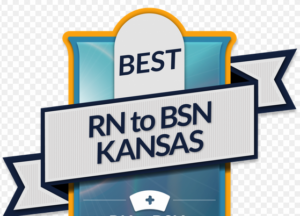
6. Benedictine College Nursing Program
- Location: Atchison, KS
- Website: https://www.benedictine.edu
- Benedictine College offers a traditional Bachelor of Science in Nursing (BSN) program, focusing on providing students with a strong foundation in nursing practice and compassionate care. The program is designed to help students develop the critical thinking, clinical, and communication skills needed to provide high-quality patient care. Benedictine College also emphasizes ethical practice and a holistic approach to nursing education. The program is accredited by the Commission on Collegiate Nursing Education (CCNE) and offers students access to excellent clinical rotations in hospitals and healthcare facilities across Kansas.
- Campus: Atchison, KS
- Type: Private
- Accreditation: CCNE
- Tuition: Approx. $25,000 per year
- Minimum Time Commitment: 2-4 years (BSN)
- Online Available: No
- Degree Requirements: BSN
- Programs: Traditional BSN
7. Newman University School of Nursing
- Location: Wichita, KS
- Website: https://www.newmanu.edu
- Newman University offers a BSN program that prepares students for a rewarding nursing career. The university’s program is designed to ensure that students receive the theoretical knowledge and practical skills necessary for success in nursing. Newman University is known for its small class sizes and close-knit community, allowing for individualized attention and mentorship from nursing faculty. The nursing program is accredited by the Commission on Collegiate Nursing Education (CCNE). Newman also offers an RN-to-BSN program to help current registered nurses earn their bachelor’s degree and advance their careers.
- Campus: Wichita, KS
- Type: Private
- Accreditation: CCNE
- Tuition: Approx. $22,000 per year
- Minimum Time Commitment: 2-4 years (BSN), 2 years (RN-to-BSN)
- Online Available: Yes (for RN-to-BSN)
- Degree Requirements: BSN
- Programs: RN-to-BSN
8. Pittsburg State University Department of Nursing
- Location: Pittsburg, KS
- Website: https://www.pittstate.edu
- Pittsburg State University offers a nursing program leading to a Bachelor of Science in Nursing (BSN) degree, preparing students for success in various nursing roles. The program emphasizes hands-on clinical practice in partnership with healthcare facilities across the region. Pittsburg State University’s nursing program is accredited by the Commission on Collegiate Nursing Education (CCNE), ensuring quality education and preparation for the NCLEX-RN exam. The university also offers an RN-to-BSN program for registered nurses looking to advance their education and career.
- Campus: Pittsburg, KS
- Type: Public
- Accreditation: CCNE
- Tuition: Approx. $8,000 per year (in-state)
- Minimum Time Commitment: 2-4 years (BSN), 2 years (RN-to-BSN)
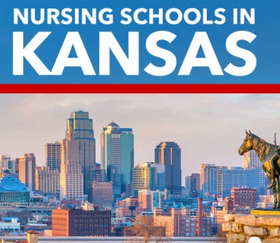
- Online Available: Yes (for RN-to-BSN)
- Degree Requirements: BSN
- Programs: RN-to-BSN
These are the Top Nursing Schools in Kansas that offer high-quality education and training for aspiring nurses, from foundational Bachelor of Science in Nursing (BSN) programs to advanced degrees like MSN and RN-to-BSN. These institutions are committed to preparing students for rewarding nursing careers through strong clinical placements, expert faculty, and accreditation from reputable bodies like the CCNE.

Struggling to meet your deadline?
Get your assignment on The Top Nursing Schools in Kansas done by certified MDs and PhDs in the USA. ORDER NOW!
The Top Nursing Schools in Kansas
Kansas boasts a variety of nursing programs, with more than 40 options ranging from Associate Degrees in Nursing (ADN) to Bachelor of Science in Nursing (BSN) and even advanced degrees like Master of Science in Nursing (MSN). The state’s nursing schools are designed to meet the demands of both traditional students and working professionals, with programs available in both campus-based and online formats. In selecting a nursing program, prospective students should prioritize accreditation, NCLEX-RN pass rates, and program flexibility. Below is a look at some of the top nursing programs in Kansas, including those offering online nursing programs and bridge options for RNs to pursue further education.
How to Choose a Nursing Program in Kansas
When choosing a nursing program in Kansas, prospective students should consider several important factors:
- Cost of Nursing Programs in Kansas: Tuition fees for nursing programs in Kansas can vary widely. Associate Degree in Nursing (ADN) programs typically range from $3,000 to $6,000, while Bachelor of Science in Nursing (BSN) programs generally cost between $6,000 and $11,000 per year for in-state students. Financial aid options, including scholarships and loans, are often available to help offset costs.
- Graduation Rates and NCLEX Pass Rates: The pass rate for the NCLEX-RN exam is a key indicator of a nursing school’s quality. In Kansas, many schools boast pass rates higher than the national average of 86.6%. Students should prioritize schools with high graduation rates and NCLEX success rates to ensure that they are well-prepared for licensure.
- Accreditation of Nursing Schools in Kansas: Only accredited nursing programs should be considered, as this is crucial for both licensure and eligibility for federal financial aid. Accreditation from bodies like the Commission on Collegiate Nursing Education (CCNE) or the Accreditation Commission for Education in Nursing (ACEN) ensures that the program meets high educational standards.
- Clinical Placements and Online Nursing Options: Clinical placements are essential for hands-on experience, which is crucial in nursing education. While some nursing programs in Kansas offer in-person placements, many schools also offer online nursing programs that can include virtual learning, making it easier for students to balance work and education. Ensure the program offers the necessary clinical placements in your area or offers online nursing options that include the clinical training you need.
Why Become a Nurse in Kansas
Becoming a nurse in Kansas offers several benefits. As of 2020, Kansas had around 29,430 registered nurses, and the demand for nursing professionals continues to grow. Additionally, Kansas’ status as a Nurse Licensure Compact (NLC) state provides nurses with the flexibility to practice in multiple states without needing additional licenses, making it an attractive option for those considering a broader career in nursing.
The cost of living in Kansas is lower than the national average, which can make it an appealing place to live and work. With a median nursing salary of $66,560 for registered nurses (RNs) in Kansas, salaries may be lower than the national average of $80,010, but they align with the state’s cost of living. Nurse practitioners (NPs) in Kansas earn an average salary of $104,530, which is slightly below the national average of $114,510.
With a cost-of-living index at 86.9, ranking 44th nationally, Kansas offers a relatively affordable living environment. Tuition for Associate Degree in Nursing (ADN) programs ranges from $3,000 to $6,000, while in-state tuition for Bachelor of Science in Nursing (BSN) programs typically falls between $6,000 and $11,000 across most institutions.
The average NCLEX-RN pass rate in 2020 stood at 86.1%, with numerous nursing schools in Kansas surpassing the national average of 86.6%.
Nursing Salaries and Job Outlook in Kansas
Kansas’ below-average cost of living is reflected in nursing salaries, which, compared to national figures, are lower. The average registered nurse (RN) salary in Kansas is $66,560, contrasting with the national average of $80,010. Nurse practitioners (NPs) in Kansas earn an average salary of $104,530, slightly below the national average of $114,510, according to the BLS.
Projections indicate an 8.1% increase in RN jobs in Kansas from 2018 to 2028, slightly below the national projection of 12.1%. Similarly, the growth of NP positions in Kansas is anticipated at 18.3%, trailing the national projection of 28.2%.
The U.S. Department of Health and Human Services forecasts a surplus of 12,600 RNs in Kansas by 2030. However, this projection does not account for retirements or departures from the healthcare field, particularly in the context of the ongoing and post-COVID-19 pandemic scenario.
Contrary to the perception of Kansas as predominantly rural, almost half of the state’s population resides in urban areas. Although the cost of living remains relatively low, salary expectations are higher in metropolitan areas, where major cities host academic medical centers, including the University of Kansas Health System in Kansas City.
Top-Paying Cities for Nurses in Kansas
| Top Paying Metropolitan Areas | Median Salary for RNs |
|---|---|
| Topeka | $67,480 |
| Lawrence | $61,680 |
| Manhattan | $60,220 |
| Wichita | $59,480 |
Source: BLS
The highest-paying areas tend to be metropolitan regions with large healthcare systems and academic medical centers, such as the University of Kansas Health System in Kansas City.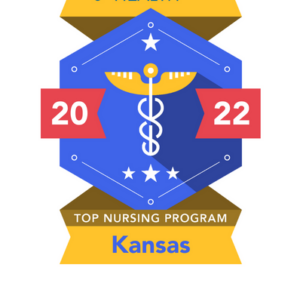
Steps to Become a Nurse in Kansas
To become a nurse in Kansas, you will need to meet several requirements:
- How to Obtain a Kansas RN License:
To become a registered nurse (RN) in Kansas, you must graduate from an accredited nursing program (ADN or BSN), pass the NCLEX-RN exam, and submit a criminal background check. The fee for a single-state RN license is $100, and for a multistate license, it’s $125. NCLEX-RN exam fees are $200, and the background check costs $48. The Kansas Board of Nursing mandates a criminal background check with fingerprints. - How to Become a Nurse Practitioner in Kansas:
Nurse practitioners (NPs) in Kansas must hold a Master of Science in Nursing (MSN) or Doctor of Nursing Practice (DNP) degree, maintain an active RN license, and complete additional certification requirements. NPs must also collaborate with a physician under Kansas’ reduced-practice authority. - Kansas Nursing Licensure Requirements and Fees: RNs and Nurse Practitioners in Kansas must complete at least 30 hours of continuing education every two years to renew their licenses.
Other Leading Nursing Programs in Kansas
- Best RN to BSN Programs in Kansas:
RN to BSN programs in Kansas allow registered nurses to earn a Bachelor of Science in Nursing while building on their previous education and experience. These programs are often offered online, making it easier for working nurses to pursue a higher degree. - Top RN to MSN Programs in Kansas:
These programs cater to RNs looking to advance their careers by obtaining a Master of Science in Nursing, with many offering flexible online options.
Frequently Asked Questions About Nursing in Kansas
- How long does it take to become an RN in Kansas?
- Becoming an RN typically takes two years to complete an ADN program or four years for a BSN. The time to receive your license after graduation is typically 6-8 weeks.
- What is the NCLEX-RN pass rate for Kansas nursing schools?
- The NCLEX-RN pass rate for nursing schools in Kansas is approximately 86.1%, slightly below the national average of 86.6%. Many Kansas nursing schools exceed this rate, showing strong program outcomes.
-
What is the attrition rate for BSN programs in Kansas?
In 2019, the attrition rate for BSN nursing programs in Kansas was 12%, while ADNs had an attrition rate of 19%. Students facing academic challenges are advised to consult their academic advisors promptly for assistance.
- How much does nursing school cost in Kansas?
- The cost of nursing school in Kansas varies, with ADN programs typically costing $3,000 to $6,000 and BSN programs ranging from $6,000 to $11,000 per year for in-state students.
- What are the best nursing schools in Kansas?
- The best nursing schools in Kansas offer high NCLEX-RN pass rates, strong clinical partnerships, and accredited programs. Some of the top schools include the University of Kansas School of Nursing, Wichita State University, and Kansas State University, as well as online options for working nurses.
With the right nursing program, Kansas offers a rewarding career with competitive salaries, a strong job outlook, and the potential for a multistate nursing license. Aspiring nurses can find diverse educational pathways to meet their professional goals.

Dont wait until the last minute.
Provide your requirements and let our native nursing writers deliver your assignments ASAP.

